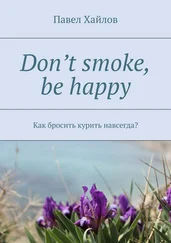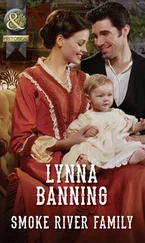“Next year, how about we spend New Year’s with my parents? It’s quieter there.”
Thomas did not smile at this. He may not believe he has another year.
When, at the appointed time, they head over to the dining room, they — crumpled, limping, their shoes unpolished — make a marked contrast to the splendour of Lady Naylor’s dress and the elegance of Julius’s frock coat. Livia wears a ruby pendant over a high-cut dress. It is startlingly becoming. Neither she nor her mother comment on Thomas’s appearance. When a cut on his lip opens during dinner, the baroness leans over and offers her handkerchief.
Half an hour before midnight Lady Naylor and Livia excuse themselves. They wish to be with the baron when the clock strikes: it is a family tradition. This leaves the three boys sitting there alone, at the big table. The first thing Julius does is to help himself to another slice of cake. He lifts his feet onto the chair next to his, makes himself comfortable. A moment later Mr. Price enters the room. He walks in in silence and takes up position near the wall, directly behind Thomas’s and Charlie’s backs. Charlie has the impression he is holding something but does not want to turn. Not one of them speaks. Julius’s fork scrapes across the china plate every time he scoops up another bite of cake.
The minutes creep by, midnight approaching. Charlie’s back is crawling with the sensation that any second now Mr. Price will come at them from behind. He might be holding a whip, a cudgel, a gun. Surely Julius is not as crazy as that. The very moment he thinks the thought, the memory of the boxing ring rises up in Charlie. His hand inspecting the floor after the fight. Soot fine as coal dust.
Who is to say just how crazy Julius may be?
Another minute passes. Julius discards the plate but holds on to the fork, taps his teeth with its prongs. Behind them, Mr. Price starts humming “Rule Britannia.”
At three minutes to midnight, Thorpe joins them. He walks in briskly and starts fussing over the champagne bottle that’s been cooling in a silver bucket. A tidy, closed little man, slight and fragile-looking next to the bulk of Mr. Price. But immediately all the tension goes out of the room. When Charlie lifts his glass to Mr. Thorpe’s proffered bottle, he cannot keep it from shaking with anxiety and relief. At midnight the clock in the corner gives a low chime. Into the awkward silence, Mr. Price injects a hearty, Scots-inflected “Auld Lang Syne.”
Nobody else thinks to sing along.
No sooner has Mr. Price worked his way through the last chorus than Charlie quickly rises.
“I’m going to bed.”
Mr. Thorpe puts down the bottle.
“Very well. I will light the way for you and Mr. Argyle.”
It seems to Charlie that he is under instruction to see them safely to their room.
Just as Thomas begins to push himself laboriously up from the table, Julius leans his body across its width and grabs Thomas’s wrist. His voice is quiet, untouched by anger.
“Look here, Argyle. Mother’s right. I didn’t like it when she said it, but there’s no denying it. We are kindred souls. We should make friends.”
Thomas freezes, looks him hard in the face, and suddenly spits a jet of Smoke. A foul smell accompanies it, along with a retching that imparts distress rather than anger. Julius recoils, then laughs and makes a sign to his valet to open the windows.
He is still laughing when Charlie and Thomas follow Thorpe out of the room.
ф
They do not turn off the light. Neither of them has mentioned it, but both are very conscious that their door has no lock. Thomas is lying on top of the bedding, still wearing his shoes. He might be finding it difficult to take them off.
“What if we wrote to Renfrew?” Charlie asks into the silence. “About all this. Julius. The cigarettes. And what Lady Naylor told you. He, too, is fighting Smoke.”
Thomas thinks, disagrees. “Renfrew is fighting sin . And we don’t know enough to go and pick sides.” He furrows his brow, then winces. The movement hurts his bruises. “Julius has changed, don’t you think? I mean, he was always a prick. But now. . Now he’s out of control.”
“Too many cigarettes?”
“Maybe. Who knows how many a day he smokes, a sweet in each cheek. In any case: no letters, Charlie. Not for now.”
ф
Charlie must have fallen asleep. He did not hear her knock, if knock she did, nor enter the room. It stings him for a second that she should have woken Thomas first. The two are in negotiations.
“You must leave as soon as possible.”
“You are very keen to get rid of us, Miss Naylor.”
“I tried to convince Mother to send you away. But she won’t believe me. She says it’s just two boys, having an argument. The law of the playground. She didn’t see what I saw.
“You must leave,” she says again. “Or there will be further incidents. The whole house already reeks of your darkness.”
Thomas’s voice is hard when he answers. “You know what I want.”
“If I show it to you, do you promise you will go?”
“We will,” Charlie intervenes, causing Livia to turn. “Just as quickly as we can.”
Livia nods. “Do I have your word on that, Mr. Cooper?”
“You do.”
“And yours, Mr. Argyle?”
“Yes.”
“Then follow me.”
ф
She leads them to the third floor. Charlie had some idea that the laboratory must be in a secret basement, hidden away beneath a trapdoor in some distant room, but here they are, high up within the main structure of the house, within an easy walk from all its main rooms. The door Livia stops before looks like any other. It is not even locked. Behind it, though, is a second, heavier door, upholstered in black leather.
“Only Mother has the key. I am sworn never to touch it.”
Even as she says it, Livia produces the key from out her left fist. She’s been clutching it so hard, its profile is cut into her palm. It occurs to Charlie that this is the first time Livia has ever broken a promise. If so, it does not show in her movements as she deftly unlocks the door.
The laboratory is not one room but a whole suite of rooms, lined up one after the other, like railway carriages. When Livia has closed and locked the door behind them, she lights a lamp and hands it over to Charlie.
“You may look, but don’t shift anything. You have a quarter of an hour. This is my mother’s life’s work. It may be wrongheaded. But we should respect it.” As she speaks, her lips flicker red in the gaslight. Not for the first time Charlie wonders what she would do if he kissed them.
The two boys drift into the room. There are so many tables, bureaus, and shelves that it is hard to know where to start. Livia alone remains near the door, as referee and timekeeper.
A large desk draws them. It stands off in one corner, but the pile of books and papers covering it mark it as the centre of the room’s activities. The room’s most comfortable chair has been drawn up to it, its upholstery dark with use. Topmost on the desk, perched precariously on a whole stack of volumes, lies a large, leather-bound journal stamped with the baron’s crest. Inside, the pages are covered with tiny, dense handwriting. Charlie bends to it, but is unable to make sense of the letters. The journal, if that is what it is, is kept entirely in ancient Greek.
As he picks up the volume, two pictures shift within it, each marking a place. One is the portrait of a teenage girl, a little younger than themselves. At first glance it is easy to miss the iron rings around her wrists and throat. She is in chains; her neck attached to the wall behind. Even so she has found enough space to twist her head away from the camera. It smudges her features and leaves her with two heads, one superimposed upon the other. The first faces the viewer, the second avoids him, shows her chin and eye in profile. The girl’s mouth connects the two faces, unnaturally elongated by her movement and stretched into a bitter smile. A strand of dark hair has come loose from the knot at her back and cuts across her pallor like a crack. Her features are foreign, hard to place. It is a face, Charlie thinks, that would be hard to forget.
Читать дальше












